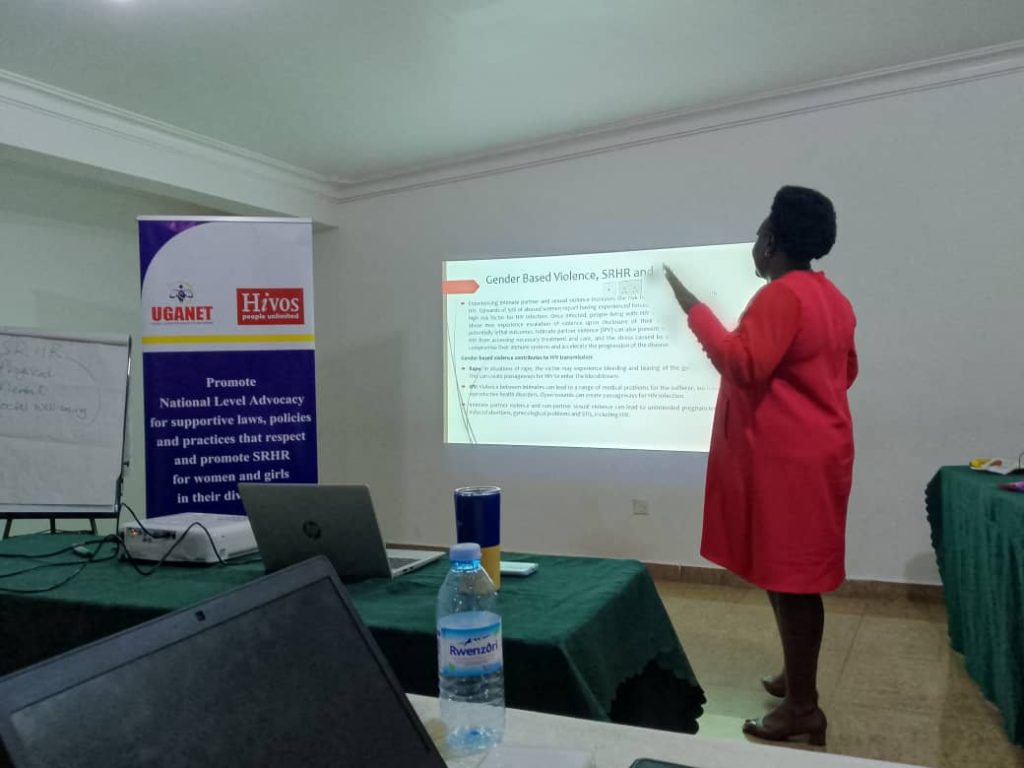UGANET Hosts Training on Sexual and Gender-Based Violence for Journalists and Survivors
The Uganda Network on Law, Ethics, and HIV/AIDS (UGANET), under the theme of promoting national-level advocacy for supportive laws, policies, and practices that respect and promote sexual and reproductive health rights (SRHR) for women and girls in all their diversity, is conducting training for journalists and survivors of sexual and gender-based violence (SGBV). Urging survivors to speak out and report cases of SGBV and GBV, UGANET is addressing the rampant issues in Uganda.
Rhonah Babweteera, Head of Gender Equality and Violence Against Women Prevention at UGANET, is emphasizing the importance of advocating for the rights of women and girls, especially in the context of sexual and reproductive health. Pointing out the significant manipulation surrounding the sexual and reproductive health of girls and women, she is stressing the need for collective efforts to protect these rights.

As a female rights activist and health promoter, Babweteera is voicing her strong opposition to practices that violate anyone’s rights. Many women are sharing their experiences about the pain and challenges of female genital mutilation (FGM), both during the procedure and afterward, particularly during childbirth. Despite these challenges, many girls are remaining silent. “FGM is not a rightful practice,” Babweteera says, “which is why the government is enacting laws against it. I believe that with sustained effort, FGM will one day become history in Uganda.”
She is also highlighting that gender-based violence (GBV) is impacting all aspects of society, including the home and work environments. One of the major challenges preventing survivors from seeking justice is the fear of reporting, often due to economic dependence on the perpetrators. “Most survivors are depending on their abusers for survival, making it difficult to come forward,” Babweteera notes. “Many survivors are also remaining silent due to fear of blame and a lack of trust in the justice system, having witnessed others report their cases without receiving support or justice.”
Babweteera is calling on the government to do more to protect young girls and women and to empower them to reject violence. “The justice system must be improved to ensure that those who are violated are granted justice,” she says. “Every person has the right to live free from fear and violence, and no offense against that right should ever be justified.”
The training is concluding with a call for greater advocacy, collaboration, and strengthened legal frameworks to support survivors of SGBV and ensure their rights are upheld.















